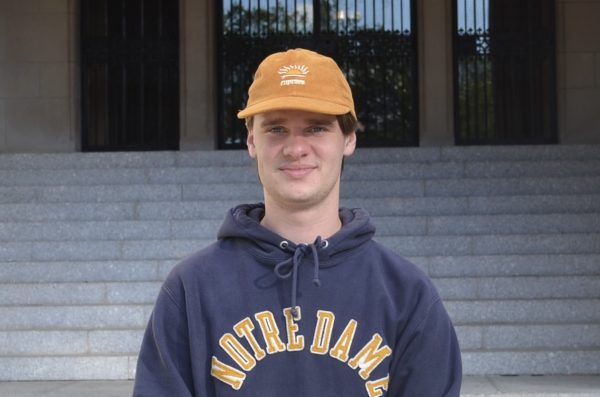Conspiracies Aren’t the Problem; It’s Our People
Are conspiracy theories truly harmful?
All one has to do is browse the news to witness the effects of conspiracy theories. Most familiar is the case of Alex Jones, who made (and subsequently lost) millions of dollars by calling the Sandy Hook shooting a “hoax.” There was also the infamous Capitol raid on Jan. 6 enacted by election deniers. Most recently, Nancy Pelosi’s husband was brutally attacked in late October by an assailant linked to far-right, extremist conspiracies. Empirically speaking, it seems as if conspiracy theories are extremely harmful. However, I argue that this is not the case.
To be honest, I enjoy conspiracy theories. I find the debates about 9/11, Jeffrey Epstein and even the moon landing fascinating. Of course, I always use discretion in deciding which theories to really believe in. When sitting around a table with friends, sharing bits of theories we’ve read on the internet, these conversations seem harmless. As I just mentioned, this same type of action has led to violence. However, I don’t think this violence is directly correlated to the theories themselves. Instead, I believe most of the blame should be put on the internet, its algorithms and a nationwide mental health crisis.
Conspiracy theories have not always existed in far-right internet forums. They’ve been used countless times by groups of different opinions to question the political zeitgeist. This is because, by nature, they question authority and place politicians in hot water. Groups like the Weather Underground in the mid-20th century used conspiracy ideas to protest the Vietnam War. Additionally, even 19th century groups of the Democrats, National Republicans, Anti-Masons and Whigs are cited to have used conspiracy theories as a tactic to thwart opposing campaigns.
However, conspiracy theories (like most other things) shouldn’t be placed in a black-and-white, good-or-bad sort of argument. Especially when looking at the case of 42-year-old David DePape, their ambiguities and external ties become more apparent. DePape was reported to have experienced homelessness and spent many hours on the internet when he wasn’t working. His avid reading of things like QAnon and other far-right theories became a point of obsession, according to his former boss. It isn’t hard to see that DePape was suffering and likely filling a void by participating in the positive feedback loop of extremism. He’s an example of conspiracy theories turning sour as a result of them being used as an unhealthy coping mechanism. I think he’s also representative of a certain demographic that is often targeted by conspiracy theory groups.
As I originally stated, I truly don’t think conspiracy theories are harmful. I instead view them as a necessary and probably inevitable reaction to government. However, I think we are seeing an increasing amount of problems due to the poisonous obsession that the far-right has inspired in its followers. For instance, I think technology has both increased the rapidity in which people absorb these theories and exaggerated their credibility. This last part is crucial, as algorithms can easily gather what would be considered people with niche, obscure or extreme viewpoints into one community, falsely attributing their beliefs with the mainstream opinion. In this way, the internet quickly normalizes extreme behaviors. Combined with a population of lonely and purposeless internet-users who also happen to be frustrated with the democratic party, this dangerous potential can become weaponized. Thus, something like QAnon is born and someone like DePape is given inspiration for a bloody attack.
So while the concept of a conspiracy theory has resided in murky morality waters recently, I still defend them. There is something fun and exciting about trading ideas, and it’s our right to challenge whatever messages are fed to us by politicians. I also think that to ban conspiracy theories or deem them as intrinsically bad is worthless, as they seem like natural parts of humanity in their truest form. Instead, I think the problem lies in a question of why the United States has a population that is so chronically online, and so chronically angry.
I’m against the violence that the far-right has incited through their various theories, but I believe that one should be free to theorize, and that it’s unavoidable. I’m not saying that an older man deserves to be bludgeoned in the middle of the night, but clearly there’s some meaning behind the exhibited distrust and dissatisfaction of citizens toward the democratic establishment.
Emma Foley, FCRH ’24, is an English major from Burlington, Conn.










































































































































































































